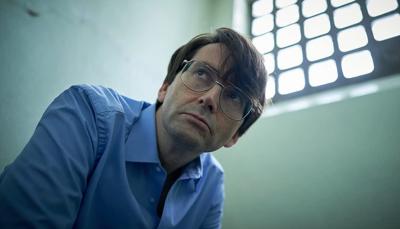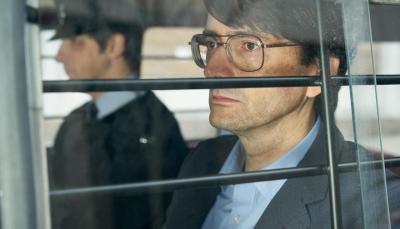‘Des’ is a Serial Killer Drama That Thankfully Centers the Victims Instead
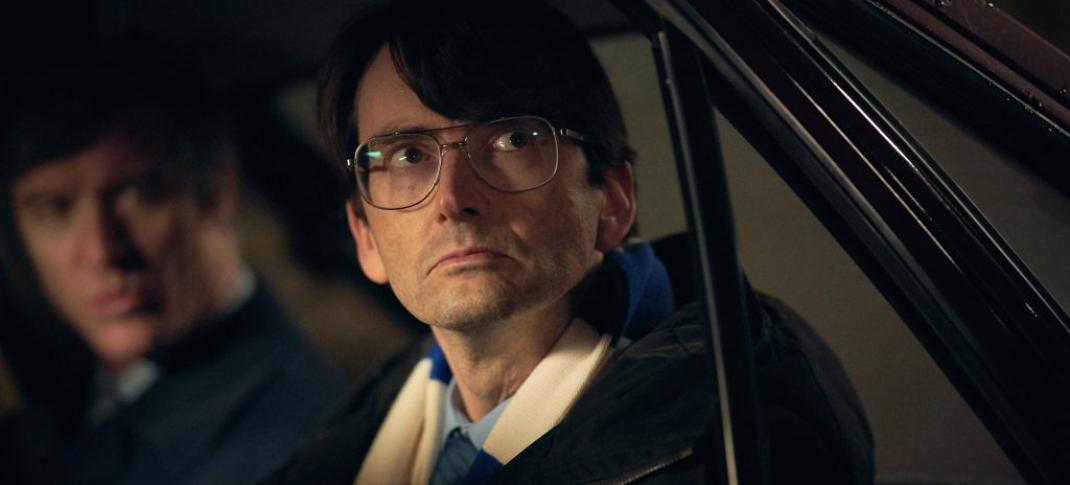
As a society, we’re obsessed with stories of serial killers. This is easy to understand, given that people who commit multiple murders are clearly operating so far out of the realm of recognizable human behavior that they’re as fascinating as they are frightening.
However, far too often, dramas focused on these sorts of stories can feel exploitative and gross, gleefully detailing the grisly details about human remains and the awful ways the victims died. Yet, remarkably, despite snagging a popular star in David Tennant and casting him as one of the U.K.’s most notorious serial murderers, the three-part drama Des is careful to keep its focus firmly on the unfortunate victims of a monster, rather than the man himself.
As a result, it’s absolutely riveting television, a terrible story responsibly told, devastating without ever becoming lurid.
The titular Dennis Nilsen, known as “Des”, is a Scottish serial killer and necrophile who killed at least 12 young men and boys in his flat from 1978 to 1983. That number may have actually been as high as fifteen, but we’ll never know for sure. Nilsen targeted those who were homeless or otherwise off the grid, suffering from drug addiction or family problems, and who therefore had few people to notice if they suddenly disappeared. (The 1980s were not a great time for anyone considered less fortunate in the United Kingdom, as homelessness and poverty skyrocketed.) By the time Nilsen was apprehended on February 9, 1983, he’d killed so many people that he’d either forgotten or never even known their names.
Of the twelve men Nilsen definitely killed, we still only know the identities of eight of them today. One was just 14 years old.
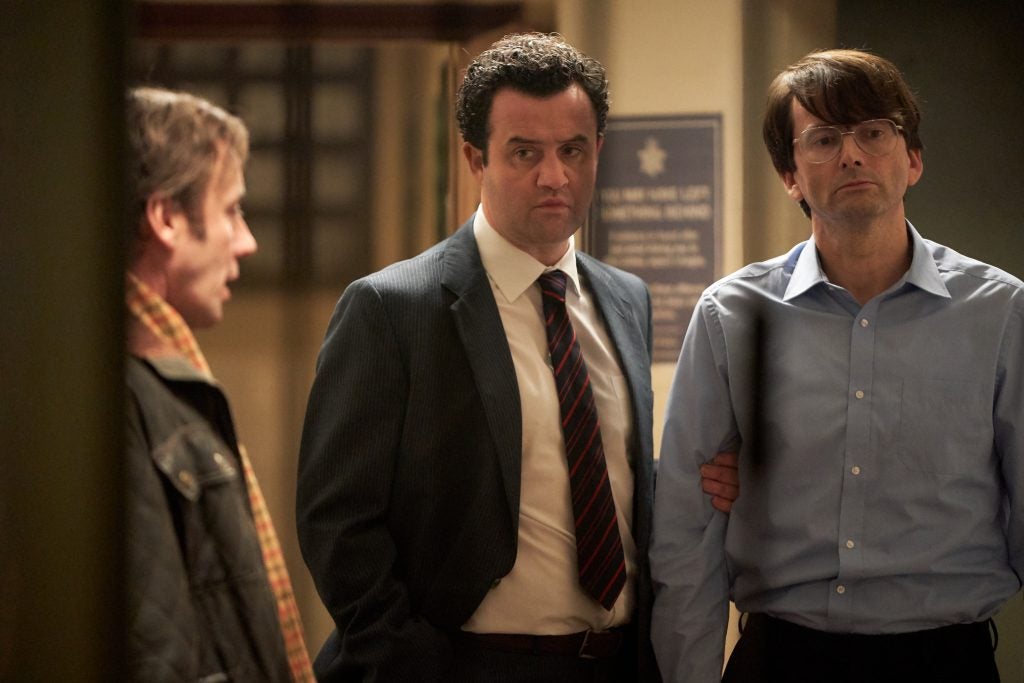
As you can see, there are plenty of horrors to be mined from Nilsen’s story, from the brutal murders themselves to the…various activities that took place involving the deceased afterward. But Des isn’t interested in showing any of that to us, and only references the worst of Nilsen’s activities when absolutely necessary and generally in clinical and perfunctory ways.
The series itself begins with Nilsen’s arrest, brought about by the report of a drain clog in his building that is discovered to be human remains. To its credit, Des never dramatizes any of Nilsen’s murders, and there are no sepia-toned flashbacks detailing the ways he lured unsuspecting and desperate men back to his flat. Only the reactions of Detective Chief Inspector and his fellow investigators are used to convey the horror of each revelation, but it’s more than enough.
Tennant’s performance is marvelously understated – the appeal of playing monsters like Nilsen for actors is often the freedom to go full dark no stars, grandstanding, and chewing up all the scenery in sight. Here, however, he’s much more a nice, if vaguely creepy neighbor than an overt Hannibal Lecter type and his performance is all the more terrifying for it. In his version, it's easy to see why so many were taken in by this man over the years.
But, rather than wrestle with obvious questions of Nilsen’s guilt or innocence, or even why he is the way he is, Des centers its monstrous murderer at the center of a very different and far more necessary set of questions. How did someone like this operate undetected for so long? And how can we achieve justice for those he killed?
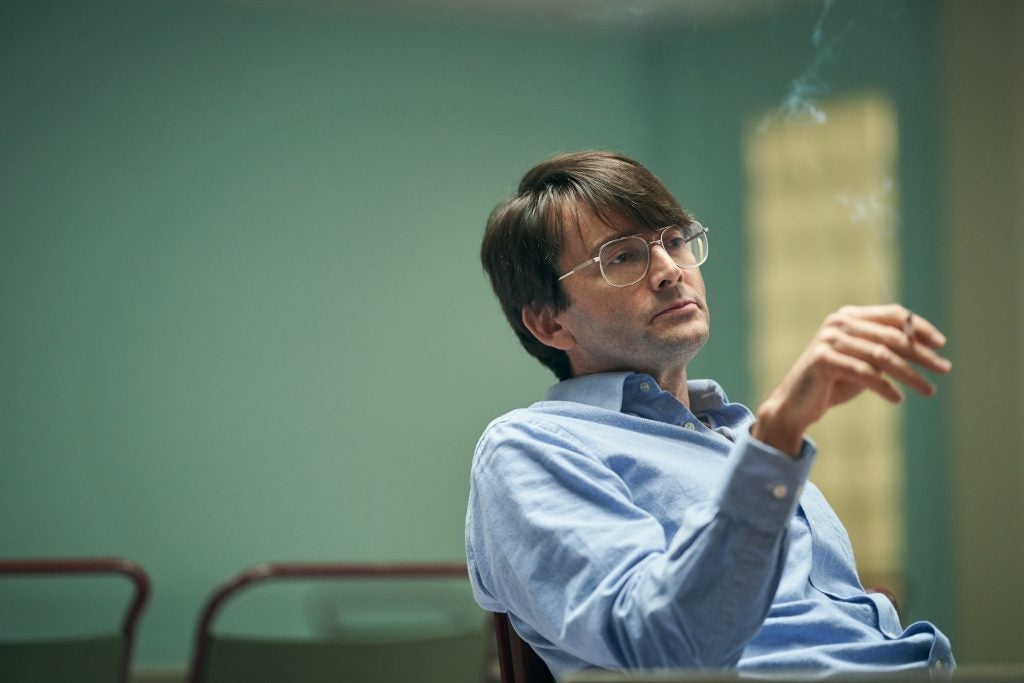
To be fair, these are questions to which the show has no real answers, and we can’t really expect it to, given that similar investigative biases and blind spots to those that helped Nilsen get away with his crimes for so long still exist today. And though Des does a wonderful job of portraying Nilsen’s repulsive and manipulative personality, it can’t tell us why one man is a monster and another not. It can only show us the ways that our own systems failed in their task of protecting us from creatures like him – or from doing right by those he harmed. The show is remarkably forthright about how many prosecutorial decisions are motivated by things like public relations needs and financial concerns, and that’s as uncomfortable to think about as Nilsen’s obvious personal manias.
In a world where true crime is not only incredibly popular but wildly sensationalized it’s rare to find a story that’s grounded in concern for truth and empathy. This is that series – one which seems more interested in doing right by those that were harmed rather than the man that did the harming – and it is thoughtful, well-rounded, and ultimately impossible to look away from.



